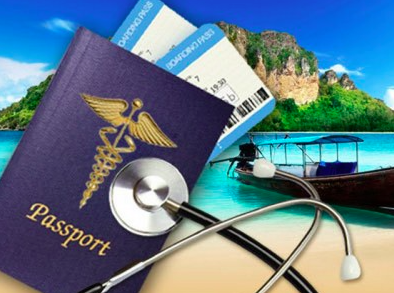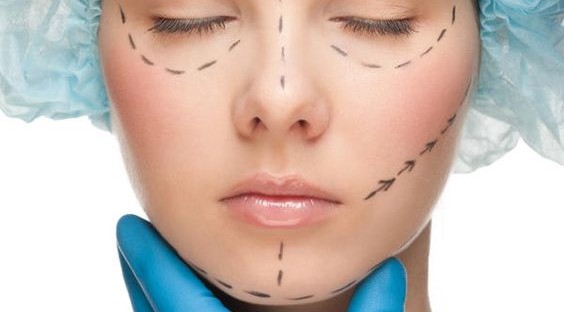Inspiration for Botched in Bangers arrived after reading an article in my local paper for a company spruiking their services for Medical Tourism and later enjoying a family dinner with the ‘Good Dr’ discussing his days events which included a patient presenting with severe complications arising from a recent breast augmentation procedure performed overseas ….. a subject both topical and provocative.
Definition-
Medical tourism or Health Tourism is the travel of people to another country for the purpose of obtaining medical treatment in that country.
Fact – This practice is growing exponentially 20-30% every year!
Australian health insurers are seeing opportunities, carving themselves a piece of the $300 million medical tourism pie, offering ‘health care packages’ of accommodation, transfers, medical consultations and airfares.
So why are people accessing care overseas?
For many the motivation to travel from developed to third world countries seeking medical treatments, is to gain immediate access to what they perceive as ‘high quality’ procedures at a fraction of the cost, with the only waiting times being in the gate lounge of an airport!
A recent study has suggested that only 40% of Australians considering procedures overseas seek health care advice before they head abroad. I’m both surprised and alarmed by this statistic.
I can see how easy is to be seduced by the lure of a new nose, resort/hospital stay, convalescing poolside with a champagne IV at 70% off what the equivalent procedure might cost in Australia
‘Australians are too casual’…
In the April issue of Australian Medicine magazine, a publication for the Australian Medical Association, discusses a draft proposal to increase public safety with a ‘7 day cooling off period’ for Adults seeking cosmetic procedures in Australia. This draft proposal is a response from the Australian Health Ministry’s Advisory council who warned that Australians are taking a ‘casual attitude to cosmetic surgery despite the significant risks and complications’.
Medical tourism is big business but at what cost?
With an increase in cosmetic procedures comes an increase in complications, not only overseas but here in Australia. Having your surgery at home means better accessing of postoperative care in the event of a complication arising. Australian taxpayers often fund post-operative complications, after patients return home to Australia seeking medical help in an already overly burdened health care system
Complications associated with any surgery are real, even when staying on home turf. Add air travel into the mix, risk of infection, anaesthetic complications and deep vein thrombosis (DVT). DVT has long been associated with air travel and recent surgery. These adverse outcomes can have devastating and long lasting impact on future health.
Informed Consent is a legal document and is vital, prior to any undertaking of surgical procedures overseas or in Australia, so it is alarming only 40% of us seek advice prior. Informed Consent means you understand all risks, benefits and alternative treatments available and agree to undertake the procedure regardless. This may be a high price to pay if something goes wrong!
Doctors believe it’s dangerous to combine holiday activities with procedural recovery and may contribute to a negative outcome.
It may not be best practice to combine waterskiing with breast augmentation. I’m being facetious but easy to understand Dr’s may be worried about patients confusing recuperation with recreation.

Further reading;
http://www.racgp.org.au/afp/2015/januaryfebruary/medical-tourism/
Not all doom…
SBS reports Rita Coleiro an Australian who has traveled to Thailand a number of times for dental work, has been more than impressed with the outcome and found ‘the overseas technology more advanced (than Australia), professional, clean and with no waiting periods’. Rita is not ‘Robinson Crusoe’ when referring to her positive experience. A search on the Internet has a plethora of anecdotal reviews detailing great outcomes and positive experiences of overseas cosmetic procedures.
….heres the gloom!
Anecdotally there are many people who have had a positive experience and support medical tourism but there are others who have died or experienced life-threatening illnesses as a result of overseas procedures?
‘Beauty queen Catherine Cando dies during the plastic surgery she won as a pageant prize’.
It seems an unusual ‘prize’ for winning a beauty contest, but plastic surgery is exactly what Catherine Cando won. During a botched liposuction procedure, the 19-year-old Ecuadorian beauty queen and medical student died. According to different sources, cause of death was ‘brain oedema’ or ‘cardiac arrest’. Either way the outcome was tragic!
Dr Stephen Priestley, Director of Emergency Medicine – Sunshine Coast (the Good Dr), experienced first hand a patient suffering complications after her breast augmentation overseas. She presented to the Emergency Dept with a necrotising skin bacteria exposing the underlying breast implants. The difficulty not only in the unidentified bacteria picked up overseas, but in finding a surgeon willing to take on complications of a surgery performed by an uncontactable overseas Doctor with an unknown history of the surgery performed. Together with these post-op complications are the legal-medico and insurance issues where negligence is difficult to establish.
‘The most distressing thing is to see patients returning from surgery performed overseas with devastating complications and the difficulty in finding a specialist to care for them. What people might overlook is an ‘itemised’ medical procedure performed in Australia includes aftercare in the cost’,says Dr Priestley.
Things to consider if you’re considering-
- Risks, benefits and alternatives to treatments being considered.
- Limited recourse –mistakes are made which may impact on your health and livelihood. Recourse may be difficult with an overseas medical practitioner due to significant legal differences when addressing medical complaints
- Medical complications – what you thought was a cheaper safe alternative may prove much more expensive if revision surgery is needed upon return to Australia.
- Quality of care in Australia has a tight regulatory body controlling medical standards and quality control – there are few countries in the world that meet these standards.
- Qualifications ask the qualifications of ALL healthcare staff and ensure they hold an ‘international qualification’ including the hospital you’re attending.
- Ensure your health care plan covers both the procedure overseas and in the event of complications after returning home. Also evacuation coverage if should need to be evacuated home.
- Be careful of signing a waiver or liability form when embarking on a medical tourism package .
No country has the monopoly on ‘state of the art’ or ‘best health care practice’ and it would be inappropriate of me to suggest that overseas obtained health care is somehow ‘less than’ when compared to Australian standards but it is difficult for a ‘medical tourists’ to identify what is marketing hype and what is ‘recognised international Standards’ of healthcare, often relying on a biased medical ‘concierge service’ to guide them.
It’s better to be safe and informed than sorry later!
Would you have cosmetic surgery overseas, I’d love to hear your thoughts?








